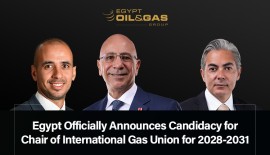Anew landmark UN report warned this month that human activity is changing the climate in unprecedented and, in many cases, irreversible ways.
The Intergovernmental Panel on Climate Change (IPCC) Working Group 1 report was described as a code red for humanity as it introduces what UN Secretary-General António Guterres described as irrefutable evidence that “greenhouse gas emissions from fossil-fuel burning and deforestation are choking our planet and putting billions of people at immediate risk.”
The major scientific study left no room for climate skeptics this time as it was released on the backdrop of a dramatic string of severe weather events that wreaked havoc across the world.
The study has warned that there is no time for delay or excuses as the scorching heatwaves, wildfires, floods and drought that hit many regions across the world in recent weeks are just going to get worse if the world failed to act in a proper way as soon as possible.
The catastrophic weather events are expected to strengthen the impact of the new report on the political decisions as it could increase pressure on governments and industries to boost their environmental-friendly measures.
The report’s findings that were approved by 195 world governments are based on over 14,000 research papers that were examined by 200 scientists from across the world. The report is expected to form the basis for upcoming talks at the UN Climate Change Conference (COP26), scheduled to be held in November, where world leaders are supposed to commit to tangible policies on tackling climate change consequences.
What’s Fueling Extreme Weather?
The landmark study warns of increasingly dangerous heatwaves, flooding and droughts, and a key temperature limit being broken in just over a decade.
The claim can easily be supported by different pieces of news describing the devastating impact of what used to be rare weather phenomena, but have become the norm during the last decade.
Recent floods in Germany, Belgium and other areas that killed at least 220 people as towns and villages were swamped were a direct result of human-induced warming, according to researchers.
A research paper that was published by the World Weather Attribution (WWA) service affirmed that global heating made rainfall events like this up to nine times more likely in Western Europe as downpours in the region are 3-19% more intense today.
Similar events also affected China, India and more recently Turkey, where floods, triggered by torrential rain, caused some buildings to collapse, smashed bridges, blocked streets with wrecked cars and cut power supplies.
According to experts, climate change has been also a key factor in increasing the risk and extent of wildfires. Researches show that changes in climate create warmer, drier conditions, increasing drought and thus boost increases in wildfire risk.
Recent heatwaves and wildfires around the world have caused alarm as we watched fires consuming forests, killing wildlife from Turkey to Brazil, and from Russia to the US. Wildfires also devastated Algeria, Lebanon and Syria.
However, some of the unexpected climate news comes from Greenland, where rain has fallen on the summit of its ice sheet for the first time in recorded history, increasing fears about the already precarious condition of its ice.
With more than two trillion tones of water locked up in its enormous blanket of ice, it would cause sea levels around the world to increase by an average of seven meters in case of melting.
The recent rainfall is a clear indication that Greenland is really warming at an unprecedented pace.
According to the US National Oceanic and Atmospheric Administration (NOAA), 2021 is “virtually certain” to be one of the top 10 hottest years on record.
Different Scenarios
The past five years on our planet have been the warmest ever recorded in history, according to Guinness World Records as 1.2 trillion tones of ice are now melting each year, whilst the Atlantic Ocean unleashes more hurricanes than ever before.
Unfortunately, the Middle East is one of the most vulnerable regions to climate change as it’s warming at twice the global average and by 2050 will be 4 degrees Celsius warmer as compared with the 1.5-degree mark that scientists have vied for to save humanity. According to experts, extreme climatic conditions may turn parts of this region uninhabitable before the end of this century.
The IPPC report found that global surface temperature was 1.09C higher in the decade between 2011-2020 than between 1850-1900. It also indicates that human influence is the main driver of the global retreat of glaciers and the decrease in Arctic ice.
One important indication was that consequences will continue to get worse for every bit of warming and many of these consequences are irreversible.
The report says that under all the emissions scenarios considered by the scientists, targets to keep the rise in global temperatures well below 2C this century will be broken unless huge carbon cuts take place.
More Decarbonization Pressure
The findings, by the IPCC report, are seen as a stern wake-up call for politicians, business leaders and policymakers, who are going to meet for the Glasgow COP26 climate talks in November to address what can be seen as one of the major existential challenges in human history.
However, the mission is still difficult even with all these threats on the table as a net-zero economy should involve renewable energy transition, restructuring infrastructure, employing new technologies and rethinking jobs and entire industries. Many countries around the world still can’t afford such changes.
Reacting to the report, many activists and politicians issued statements about the need to curb carbon emissions by eliminating the use of coal, investing in renewable energies and putting new taxes on fossil fuels.
As usual in such events, fossil fuel was under fire as the UN Chief indicated that the report “must sound a death knell” for coal, oil and gas, warning that fossil fuels were destroying the planet.
Guterres also referred to the enormous financial risk to investment managers, asset owners and businesses due to the climate crisis. “These risks should be measured, disclosed and mitigated. I am asking corporate leaders to support a minimum international carbon price and align their portfolios with the Paris Agreement,” he said.
Former US Vice President Al Gore called for immediate climate action, insisting that “we cannot rely on vague pledges with distant deadlines. We need concrete plans to phase out fossil fuels in the near term. As the scientists at the IPCC make clear: there is no time left to waste.”
However, many experts saw the new report as a remainder for many big companies that their climate pledges to cut their emission to net-zero by 2050 are still insufficient to avert climate change effects.
Many of these companies are poised to more pressure not just from governments but also from employees, customers and investors. As the new report can serve as a new tool for climate litigation, even insurance companies are starting to take climate change more seriously.
One of the report’s recommendations is for the public and private sector to work together to ensure a just and rapid transformation to a net-zero global economy.
Among its gloomy facts, the IPPC report also kept a sliver of hope with scientists indicating that a catastrophe can be avoided as climate systems would respond well to carbon removal. With that, there is hope that deep cuts in emissions of greenhouse gases could stabilize rising temperatures.
Planting more trees, expanding carbon capture and using new technology can indeed limit the warming and its consequences. However, the question now is whether leaders will meet the moment and learn from the mistakes of the past.








